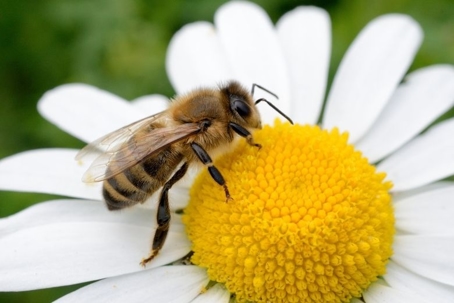What Do Honey Bees Eat?
Honey bees rely on two primary food sources: nectar and pollen. Nectar, collected from flowering plants, is their main carbohydrate source and provides the energy needed for flight, foraging, and daily activity. Back in the hive, these bees convert nectar into honey through enzymatic processing and evaporation, creating a long-term, stable energy reserve. Pollen serves as their primary protein source and is essential for brood development; nurse bees use it to produce royal jelly and brood food that nourish larvae. They also consume small amounts of water to regulate hive temperature and maintain proper humidity for brood rearing. Together, these elements form a balanced diet that supports the colony’s growth, immunity, and overall stability.
Do Honey Bees Eat Nectar?
Yes. Honey bees actively eat nectar, both in the field and after it’s stored in the hive. For foraging bees, nectar is an immediate source of quick energy that fuels flight and navigation. Once brought back to the colony, the nectar is processed into honey, which becomes the colony’s long-term carbohydrate reserve. Worker bees consume this stored honey throughout the year—especially during periods when flowers aren’t blooming—to sustain the hive’s daily activity, thermoregulation, and brood care.
Do Honey Bees Eat Pollen?
Yes. Honey bees consume pollen as their primary source of protein, lipids, vitamins, and minerals. While adult worker bees don’t eat large amounts themselves, they rely on it to produce brood food—specialized secretions used to feed developing larvae. Young larvae, in particular, depend on these protein-rich secretions for proper growth. Pollen also supports the bees’ immune function, gland development, and overall colony strength, making it just as essential as nectar in a healthy hive.
Do Honey Bees Eat Royal Jelly?
Honey bees do eat royal jelly, but how much they consume depends on their role and life stage.
- All larvae eat royal jelly at first. During their first few days, every bee larva—workers, drones, and future queens—is fed royal jelly produced by nurse bees. This early diet jump-starts development and provides dense nutrition.
- Queen larvae continue eating it exclusively. After the initial period, only larvae destined to become queens keep receiving royal jelly. This constant supply triggers the physiological changes that create a reproductive queen.
- Adult worker bees consume small amounts. Nurse bees, in particular, eat limited quantities because they need royal jelly’s nutrients to keep their hypopharyngeal glands active so they can produce more of it.
So while royal jelly is most closely associated with queen development, it plays a role in feeding the entire colony at specific stages.
Do Honey Bees Eat Bee Bread?
Yes. Honey bees eat bee bread, which is fermented pollen stored in the comb. It’s one of their most important protein sources.
Here’s how it works:
Foragers collect pollen and pack it into cells with a bit of nectar and enzymes.
Inside the cells, the mixture ferments, creating bee bread. This fermentation makes the nutrients more digestible and preserves the food longer.
Nurse bees consume bee bread to fuel the production of brood food (the secretions used to feed larvae).
Brood development depends heavily on it, since growing larvae require substantial protein.
While adult worker bees don’t rely on pollen-based foods as heavily once they age, bee bread is vital for early adult development, gland health, and the colony’s long-term strength.
Do Honey Bees Drink Water?
Yes. Honey bees do drink water, and it plays several critical roles in colony function. They use water to:
Regulate temperature: Bees spread water inside the hive and fan their wings to create evaporative cooling, preventing the colony from overheating.
Maintain brood humidity: Proper moisture levels are essential for healthy egg and larval development.
Dilute honey: Water helps thin thick or crystallized honey so bees can consume it more easily.
Support metabolism: Like all living organisms, bees need water for basic physiological processes.
Foragers collect water just as they collect nectar, though from different sources—puddles, damp soil, birdbaths, and plant surfaces are all common spots. Water carriers then distribute it to where the colony needs it most.

